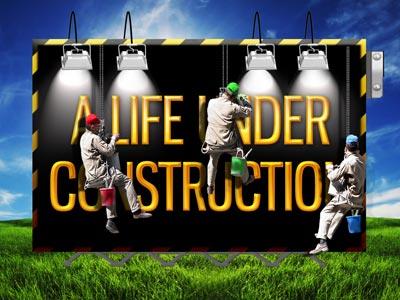-
The Challenge Of Change
Contributed by Stephen E. Trail on Nov 28, 2017 (message contributor)
Summary: A sermon to challenge our perspectives about change.
"The Challenge of Change"
Isaiah 54:1-4
Isaiah 54:2 Enlarge the place of thy tent, and let them stretch forth the curtains of thine habitations: spare not, lengthen thy cords, and strengthen thy stakes;
Introduction: How many of you are interested in seeing our church grow? I know that sounds like a dumb question because every member of this church should be interested in seeing it grow, right! But the trouble is that even though we say we're all for it sometimes we don't know what's involved in making it happen because, make no mistake, we have to make it happen. First, let's examine:
I. The Problem of Barrenness -- v. 1
One of the great burdens of my heart is the knowledge that the overwhelming number of churches in this country are not growing. This would also be true among our fellowship as well. FWB's have over 2,500 churches in the US and the majority are showing no signs of growth, as a matter of fact they are showing serious sings of decay! I've struggled with this and studied the Scripture and I've come to the conclusion that that problem of barrenness in our churches is directly related to a failure to make the changes that are necessary for growth to occur.
Did you know that ancient Chinese women valued small feet so much that they would wrap a girls feet when she was very young. And the result was that their feet would not grow because growth was restricted. So you would see a woman who was 40 years old but her feet would be the size of a 4 year olds feet. What has this got to do with the church? I believe that there are some things that restrict the growth of the church. What are some things that restrict the growth of the church.
a. The reproach of barrenness
There are many references to barrenness in the Scriptures.
Genesis 11:30 But Sarai was barren; she had no child. (Issac)
Genesis 25:21 And Isaac intreated the LORD for his wife, because she was barren: and the LORD was intreated of him, and Rebekah his wife conceived.
1 Samuel 1:2 And he had two wives; the name of the one was Hannah, and the name of the other Peninnah: and Peninnah had children, but Hannah had no children. (Samuel)
Judges 13:2 And there was a certain man of Zorah, of the family of the Danites, whose name was Manoah; and his wife was barren, and bare not. (Sampson)
For these women and others in the Bible there was a reproach connected with their barrenness.
Genesis 30:23 And she conceived (Rachel), and bare a son; and said, God hath taken away my reproach:
The problem as I see it is that we do not see the barrenness of the church as a reproach.
b. The reason for barrenness
When we see the condition of the church we should be moved. We should be like one of the OT matriarchs cried "give me children or else I die." She was desperate to remove her reproach and so in her desperation she prays for a child even though she knows the pain and trials that will come with it. Jesus used this metaphor in His teaching:
John 16:21 A woman when she is in travail hath sorrow, because her hour is come: but as soon as she is delivered of the child, she remembereth no more the anguish, for joy that a man is born into the world.
Paul uses this same expression to describe the spiritual birth and growth of the church.
1 Thessolonians 2:9 For ye remember, brethren, our labour and travail: for labouring night and day, because we would not be chargeable unto any of you, we preached unto you the gospel of God.
I want to suggest to you that there must be a sanctified desperation that sadly is missing from our churches today.
c. The results of barrenness
What are the results of barrenness? In the context of the local church there is a slow and steady dissipation, dilution, debilitation, and ultimately death! One of the saddest sights I know anything about is the closing of a church. A church that in days gone by had been vibrant and alive and reverberated with the shouts, amens and hallelujahs is now cold, quiet and lifeless.
II. The Prescription for Blessing -- v. 2
a. The comfort zone
Notice in verse 2 that he talks about "thy tent". In this case the tent would be their home, their dwelling, the place where they feel the most comfortable. There is really "no place like home!" Amen!" How many of you have lived in the same home for a long time? When someone comes into your home (your child or someone else) and moves something, how does it make you feel? For one thing you will probably notice the change immediately and there will be a strong compulsion to put it back "in its place." Am I right? When someone moves something your comfort zone becomes the twilight zone! Often times we get so comfortable in our church home that we get the same way. We get used to the familiarity of our church home. We get comfortable with the place that we sit in, the songs that we sing, and almost everything else we do at church. And therein lies the problem.

 Sermon Central
Sermon Central



